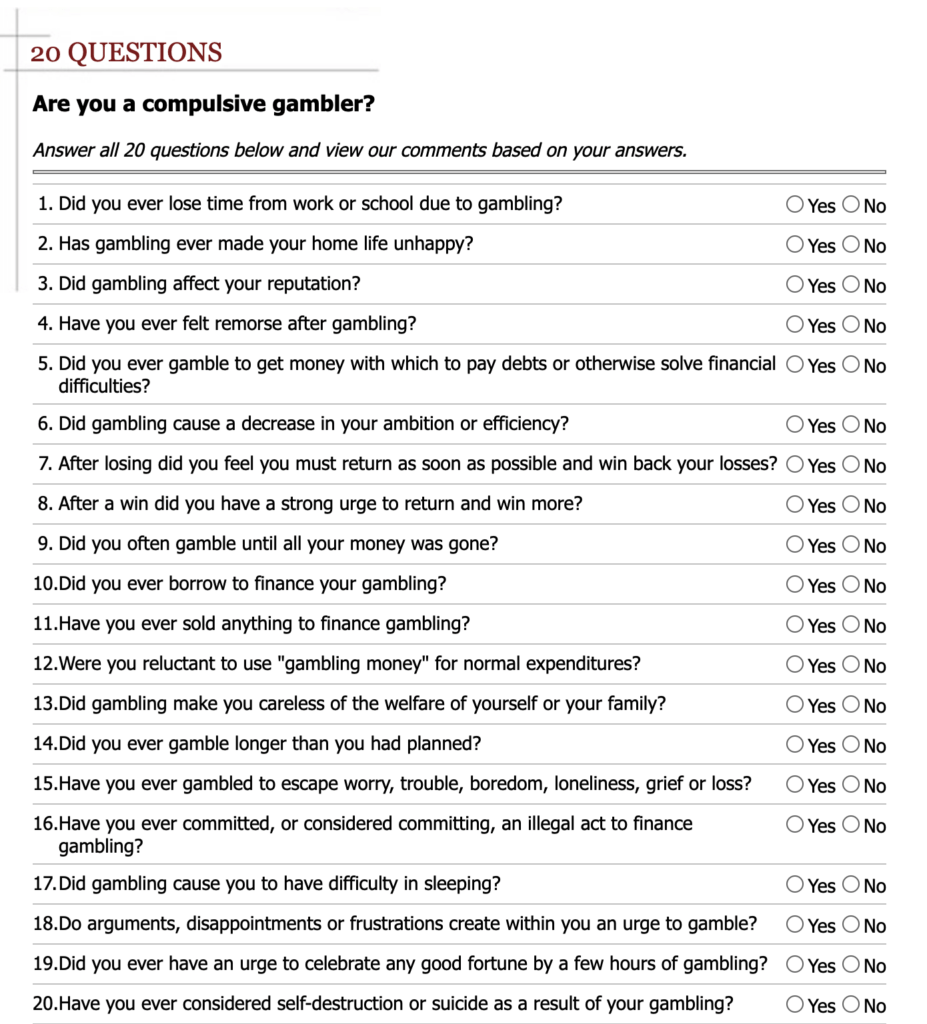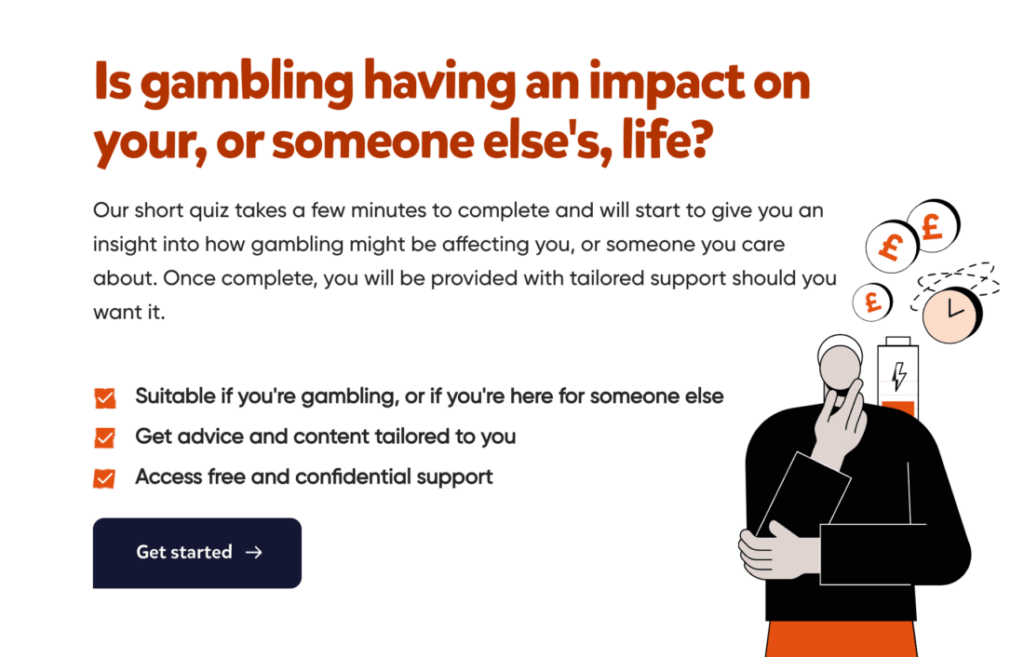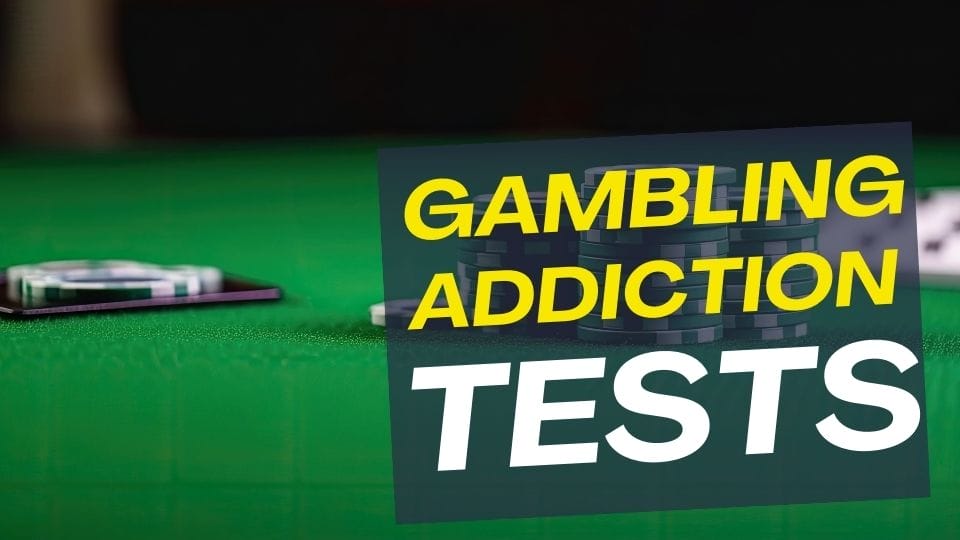Problem Gambling Test – Why do you gamble?
Understanding your gambling is the first step in our How to Stop Gambling guide. Then we ask: What happens when you gamble? Does it create a moment of peace when nothing else matters? Can you relate to that?
Another way to phrase these questions is:
- What do you feel when you’re gambling?
- What do you think when you’re gambling?
- What do you NOT feel or think when you’re gambling?
Spend time with these questions. The better you understand what happens when you’re gambling, the higher the chances are to stop gambling if that is what you want. The questions are also a good self test for responsible gambling.
The only way to gamble responsibly is to gamble for entertainment. Naturally, it also means you must gamble with the money you have and can afford to lose. Going to the cinema is entertaining, but it becomes a problem if you go every day and need to borrow money to do it.
If you gamble to win or realize that you gamble to escape, you might have a gambling problem, and we recommend you consider stopping. No matter the result on any gambling addiction test, if you think you have problems controlling your gambling you’re welcome to join our family of problem gamblers and start your quest to become gambling free.
The Happiness Test
The Happiness Test is no ordinary gambling addiction test. It’s not going to tell you if you have a gambling problem. Instead, it will help answer the following questions:
- What is gambling doing for you?
- Why is it so hard to stop gambling?
- What do you need to do to stop gambling?
The idea of the Happiness Test is that you already know if you have a gambling problem. Then there is little point in answering “how to test for gambling addiction”. Instead, the Happiness Test asks questions about your life and aims to pinpoint what causes pain. Common reasons for gambling are stress, anxiety, loneliness, and boredom.
If you suffer from a lot of pain in your life, then the threshold to be a high-risk gambler is lower than if you are happy. After the test, you’ll get recommendations on what to focus on if you want to stop gambling.

Here, you can do the Happiness Test
DSM 5 – Gambling Disorder Test
The American Psychiatric Association (AMA) has developed the Diagnostic and Statistical Manual of Mental Disorders (DSM-5) to help physicians, gambling counselors, and gamblers diagnose gambling disorders. The test is based on 9 questions; depending on how many “YES” the client answers, the more severe the disorder is.
To be diagnosed with a gambling disorder, according to DSM-5, an individual must meet at least 4 of the following criteria in the past 12 months:
- It needs to gamble with increasing money to achieve the desired excitement.
- Is restless or irritable when attempting to cut down or stop gambling.
- Has made repeated unsuccessful efforts to control, cut back, or stop gambling.
- Is often preoccupied with gambling (e.g., having persistent thoughts of reliving past gambling experiences, handicapping or planning the next venture, thinking of ways to get money to gamble).
- Often gambles when distressed (e.g., helpless, guilty, anxious, depressed).
- After losing money gambling, one often returns another day to get even (“chasing” one’s losses).
- Lies to conceal the extent of involvement with gambling.
- Has jeopardized or lost a significant relationship, job, or educational or career opportunity because of gambling.
- Relies on others to provide money to relieve desperate financial situations caused by gambling.
Source: Dignostic Criteria DSM-5 312-31 (F63.0)
You can ask yourself these questions or do them with a gambling counselor.
Comment: Perhaps it’s the fact that we’re not native English speakers. But for us, the term disorder is stronger than addiction. We would use the term disorder for something incurable, something we must learn to live with, like ADHD. Addiction can be cured. Therefore, we’re skeptical of a nine-question test that can put a “disorder” label on someone.
If you want to know more about the compulsive gambling test, we have explained the gambling disorder DSM-5 in detail in another article.
Gamblers Anonymous 20 Questions
If you visit your first Gamblers Anonymous meeting, you’ll be asked the famous GA 20 Questions. These gambling addiction questions are more about accepting that you have a gambling problem than determining if you have one. The first five questions are:
- Have you ever missed work or school due to gambling?
- Has gambling ever caused problems in your home life?
- Has gambling affected your reputation?
- Have you ever felt regretful after gambling?
- Have you ever gambled to pay off debts or solve financial problems?
- …
You can read our article Purpose Of Gamblers Anonymous 20 Questions to see all questions, visit the Gamblers Anonymous website, or check out the image below.

For many, it’s difficult to accept a gambling problem, but you can take this problem gambling test at home. It’ll not tell you how to stop gambling, but it might help you with some acceptance.
BeGambleAware – Gambling Addiction Quiz
Many gambling sites are linking to BeGambleAware’s problem gambling quiz. It’s again more about testing your gambling habit and helping you understand if you have a gambling problem than advising you on how to stop gambling. The gambling problems self-screening test asks you the following questions:
- Do you ever feel worried about your gambling?
- Is your gambling causing you any difficulties?
- In what areas of your life is gambling causing the most difficulties?
- Do you feel you need to keep gambling with larger amounts of money?
- Have you ever gambled with more than you could afford to lose?
- Have you ever gone back later, or the next day, to try and win back money you’ve lost?
- Have you ever hidden anything about your gambling?
Source: BeGambleAware
It’s a quick quiz you can take. It only takes 2-3 minutes. It’s often referred to as one of problem gambling tests by casinos. The test asked about common signs of gambling addiction to help you be aware of them. You can take the test on their website.

Mobile Gambling Addiction Tests
There are some stop gambling apps in AppStore and Google Play. If you want to do a gambling addiction test iPhone, you can download the mobile app QuitGamble or do the test here. We don’t know of any gambling apps with a problem gambling test built into the app.
The QuitGamble app is also available for Android. So, if you’re looking for a Gambling Addiction Test Android, you can do it directly in the app. When you finish the test, you’ll get recommendations on small things you can do or which online courses to select.
Discussion
Before you take any gambling addiction tests, ask yourself what you want to get out of it. Do you want to know why you’re gambling, do you want to check if you’re a high risk gambler, or just get some help accepting that you’re a compulsive gambler?
Most problem gambling tests are elementary. They only ask you questions about classic signs of gambling addiction. You’re probably better off reading an article like 53 Unexpected Symptoms of Gambling Addiction, than taking such tests.
The Happiness Test is the starting point for many users on QuitGamble.com. It’s a test developed to help you understand your gambling habits and why you’re gambling. We believe that is key to any successful recovery. Most compulsive gamblers don’t know why they gamble. They often think it’s because of winning, but it rarely is.
Suppose you want to stop gambling, and you found this page. Then we recommend you ask yourself: Why am I here? If you already think you have a gambling problem, you probably have. Then, the next step is to start exploring ways to quit gambling.
Begin by asking yourself what happens when you’re gambling and getting a head start to become gambling-free.
Good luck!
 English
English Español
Español Français
Français Português
Português Svenska
Svenska

